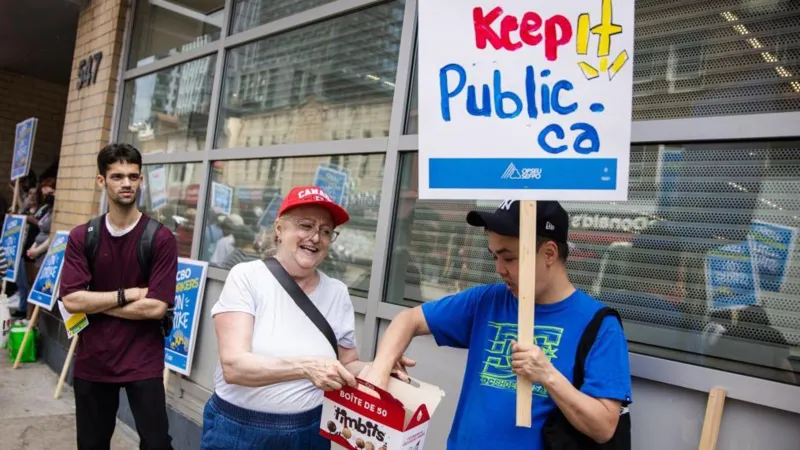Last week, Ontario Premier Doug Ford posted a video message for his province. It looked like a regular political ad, with Ford wearing a black polo shirt and a blue apron, grilling burgers with beer cans nearby. He said, “It’s summertime in Ontario,” while smiling at the camera.
But the video had a deeper meaning. Ford introduced an interactive map showing local breweries, wineries, and distilleries, taking a strategic step in a liquor labor dispute affecting summer alcohol sales in Ontario.
For the first time ever, Ontario’s liquor retailer, the LCBO, went on strike. This highlighted Ontario’s old-fashioned liquor control system. On July 5th, over 9,000 LCBO employees stopped working after contract talks with the government failed. The LCBO closed all 650 stores for at least two weeks.
This week, the workers’ union resumed talks with the province, but another challenge arose. Ford promised to speed up plans to sell canned cocktails in private stores, which the union opposed. On Friday, it seemed the issue was settled, with the union announcing a tentative deal. However, they later said the government refused to sign the return-to-work order, so the strike continued. The LCBO accused the union of negotiating in bad faith and plans to file a labor complaint against them.
Ontario’s liquor system, run by the LCBO for nearly a century, has evolved slowly. Initially, customers needed a permit to buy liquor, and stores were hidden away with discreet packaging. Over time, the LCBO became more customer-friendly, offering wine tasting and free samples. Now, 450 grocery stores in Ontario sell beer, wine, and cider.
During the strike, Ontarians can still buy alcohol online from the LCBO or in some stores. Starting this month, convenience stores, big-box stores, and grocers can sell ready-to-drink cocktails, which the union says threatens their business and the LCBO’s $2.5bn revenue for the province. Ford argues it helps small businesses while leaving the LCBO with an advantage as the sole retailer of high-alcohol spirits and the main alcohol distributor in Ontario.
Despite the strike, many Ontarians aren’t greatly affected due to existing alcohol availability. An internal poll showed mixed feelings: while some support liquor liberalization, over half back the strike. Ford’s interactive alcohol retail map annoyed some residents who felt it highlighted misplaced priorities.
Dr. Adil Shamji, a Liberal politician, said constituents ask for help finding doctors, childcare, or housing, not alcohol. He wants a deal that protects the LCBO. Ford is ready to negotiate but remains firm on selling ready-to-drink beverages, stating, “If they want to negotiate over [ready-to-drink beverages], the deal’s off.”
This summary gives a clear view of the situation, as reported by BBC.
https://www.bbc.com/news/articles/cjl69zk8y13o

